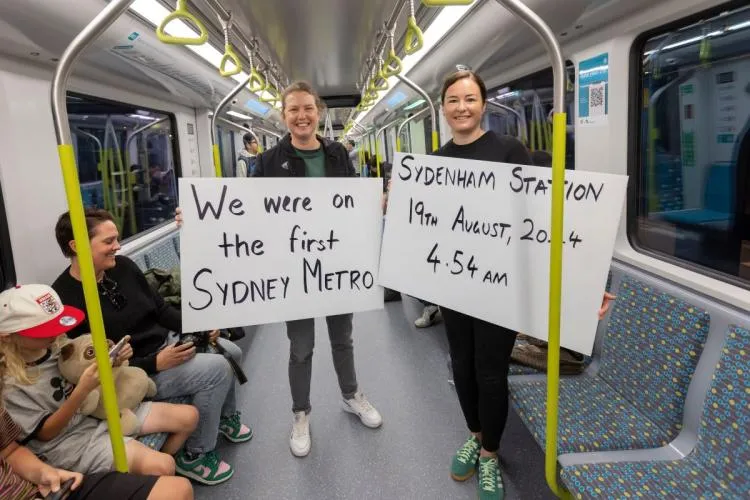Hundreds of thousands of rail passengers will suffer hours of delays and cancellations this month as figures for oversized lorries hitting low bridges (bridge-strikes) peaked in October/ November to around ten reported incidents every day, according to a new campaign by Network Rail. In addition, there are 2,000 bridge strikes every year costing the taxpayer some £23 million ($30 million) in damages and delays.
October 26, 2017
Read time: 3 mins
Hundreds of thousands of rail passengers will suffer hours of delays and cancellations this month as figures for oversized lorries hitting low bridges (bridge-strikes) peaked in October/ November to around ten reported incidents every day, according to a new campaign by 5021 Network Rail. In addition, there are 2,000 bridge strikes every year costing the taxpayer some £23 million ($30 million) in damages and delays. On average, each bridge strike costs £13,500 ($17,000) and causes two hour delays to train services.
Stuntney Bridge in Ely, Cambridgeshire, is the most bashed bridge in Britain and has been hit 113 times since 2009. Kenworthy Road Bridge in Homerton has had 99 strikes in the last eight years, followed by a bridge on Thurlow Park Road in Tulse Hill which has been struck 92 times.
Both Network Rail and TfL are urging drivers to fully understand the size of their vehicles and plan their route to avoid low bridges, as findings revealed that 43% of drivers admit to not knowing their vehicle size. In addition, 52% admit to not taking low bridges into account when planning their journeys.
Network Rail has launched ‘what the truck’ campaign aimed at HGV drivers, which will involve engaging haulage and public transport industries and fitting steel beams on rail bridges where there are a high number of strikes to reduce the impact. The scheme will also include working with local authorities to ensure road signs displaying bridge heights are correct as well as calling for stricter penalty enforcement for drivers when strikes do happen.
The rail infrastructure company will also visit logistics companies to raise awareness of the issue and work with trade bodies such as the6985 Road Haulage Association.
Research suggests that the increase in bridge crashes may be due to the hour change and increased deliveries ahead of Christmas with most strikes happening between 10am-11am, but remaining high until around 6pm.
Sir Peter Hendy, chairman of Network Rail, said: “It's only a matter of time before road or rail users are killed as a result of this carelessness; we need professional HGV drivers and their operator employers to get behind and support this campaign to eradicate bridge bashing, which reaches epidemic levels at this time of year."
David Pickering, Chief Operating Officer at3870 Eddie Stobart, said: “We are pleased to be supporting Network Rail’s campaign as we have worked really hard to highlight the importance of our drivers knowing the height of their vehicles. As well as carefully planning routes to avoid low bridges, we carry out manual vehicle checks at the beginning of every journey which requires the driver to adjust the trailer height on a measurement in the cab. Additionally, we are installing software early next year which will warn drivers with an audible alarm when they are approaching a bridge. We have also tried some quirky ways of engaging drivers in the issue including our giant giraffe ‘Bridget’ in our Training Academy which serves as a constant reminder to our drivers of why they need to be bridge aware!”
Stuntney Bridge in Ely, Cambridgeshire, is the most bashed bridge in Britain and has been hit 113 times since 2009. Kenworthy Road Bridge in Homerton has had 99 strikes in the last eight years, followed by a bridge on Thurlow Park Road in Tulse Hill which has been struck 92 times.
Both Network Rail and TfL are urging drivers to fully understand the size of their vehicles and plan their route to avoid low bridges, as findings revealed that 43% of drivers admit to not knowing their vehicle size. In addition, 52% admit to not taking low bridges into account when planning their journeys.
Network Rail has launched ‘what the truck’ campaign aimed at HGV drivers, which will involve engaging haulage and public transport industries and fitting steel beams on rail bridges where there are a high number of strikes to reduce the impact. The scheme will also include working with local authorities to ensure road signs displaying bridge heights are correct as well as calling for stricter penalty enforcement for drivers when strikes do happen.
The rail infrastructure company will also visit logistics companies to raise awareness of the issue and work with trade bodies such as the
Research suggests that the increase in bridge crashes may be due to the hour change and increased deliveries ahead of Christmas with most strikes happening between 10am-11am, but remaining high until around 6pm.
Sir Peter Hendy, chairman of Network Rail, said: “It's only a matter of time before road or rail users are killed as a result of this carelessness; we need professional HGV drivers and their operator employers to get behind and support this campaign to eradicate bridge bashing, which reaches epidemic levels at this time of year."
David Pickering, Chief Operating Officer at








